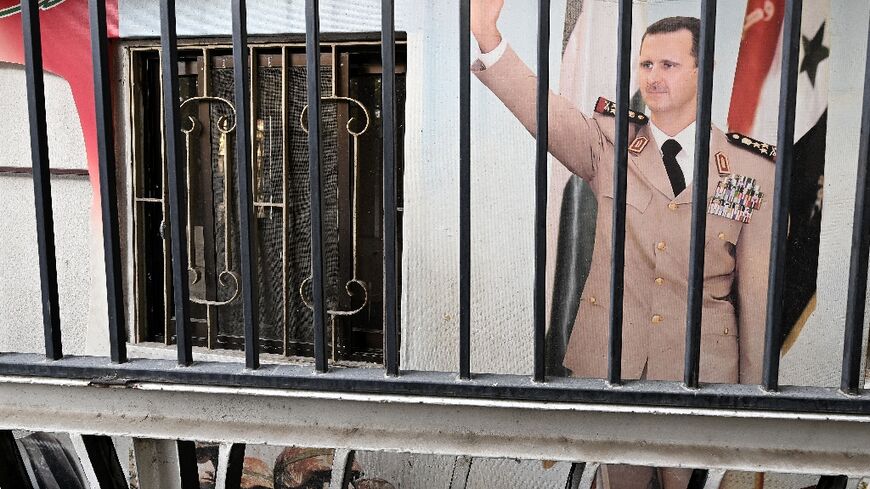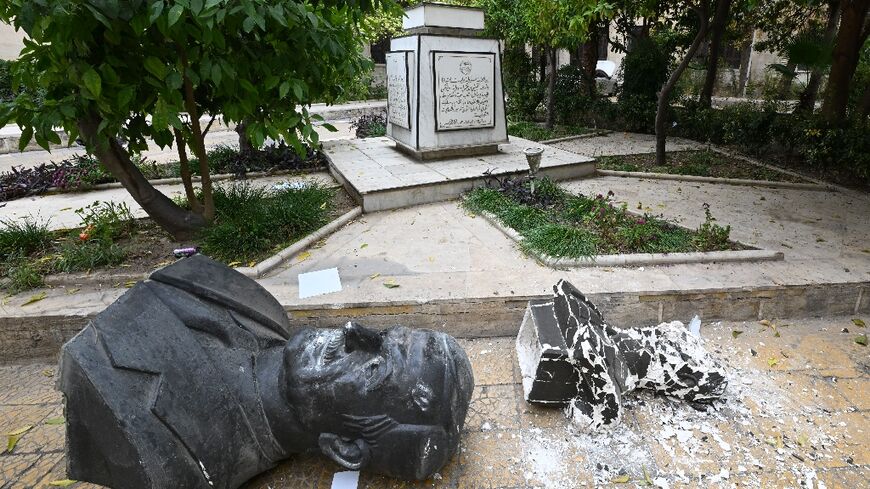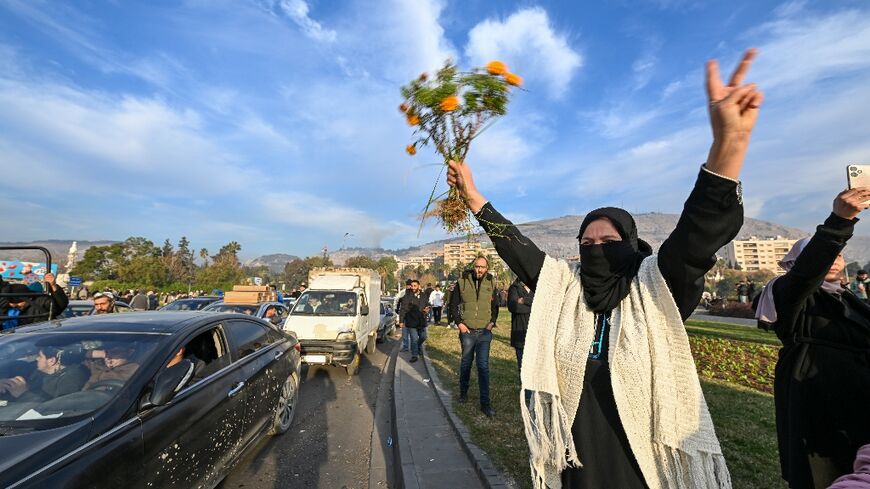Loyal no more: Syrians turn from once-omnipotent Baath party

Maher Semsmieh turned in his rifle on Thursday at an office of Syria's Baath party, more than 60 years after its oppressive rule in Syria began, and days after it ended.
"We are no longer Baathists," Semsmieh, 43, said with a smile of relief, four days after Islamist-led rebels toppled the Baathist government of president Bashar al-Assad.
"We were obliged to belong to Baath because, for them, if you weren't with them you were against them," Semsmieh said.
Syria's Baath party under the Assad dynasty was a feared instrument of repression, ruthlessly ruling over the country until Sunday when the government collapsed under the surprise rebel advance.
On Wednesday the Baath party announced the suspension of its activities "until further notice," after the rebel takeover led by Hayat Tahrir al-Sham (HTS) and as Assad's military forces abandoned their posts.
Semsmieh said all his Baath superiors had not been seen since Sunday when the capital Damascus fell to the rebels.
"They all suddenly disappeared," he said.
At the entrance to the office, armed men from among those who had entered the capital piled up the weapons that the former party members surrendered.
Semsmieh, with a thin beard, belonged to the "Baath avant-garde" tasked, he said, with recruiting civilians and arming them "so they support the Syrian army".
Standing in front of green military crates with rifles resting on top, he said: "We lost a lot of martyrs... They didn't know what they were dying for."
- 'Had to be a member' -
Firas Zakaria, smiling and wearing a white shirt, arrived with a Kalashnikov rifle and a handgun in a holster, both of which he gave to a guard dressed in fatigues at the gate.
"They asked us to hand in our weapons and we're in favour of that," the balding and clean-shaven Zakaria said.
"We're cooperating in the interest of the country," said the civil servant from the industry ministry.
Like many Syrians, Zakaria said he was compelled to join Baath in order to work in government.
"You had to be a member of Baath to get a job," he said.
The Baath party, which advocates Arab unity, was founded on April 17, 1947 by two French-educated Syrian nationalists, Michel Aflaq, an Orthodox Christian, and Salah Bitar, a Sunni Muslim.
It later merged with the Arab Socialist party and branches were established in several Arab countries including Iraq, before a military coup in 1963 brought Baath to power in Syria. Almost a decade later, Hafez al-Assad became president.
The two founders of the party, whose name means "resurrection" in Arabic, could not have imagined that two rival branches -- Syrian and Iraqi -- would head autocratic governments that were enemies of each other.
Bashar al-Assad was the party's secretary general, and its headquarters bears witness to his flight. A senior Russian official told US broadcaster NBC on Tuesday that Assad is being hosted in Russia.
- 'The right path' -
Cups of coffee and pieces of bread are still on a table inside the party headquarters.
Cars are abandoned on the grounds, documents are strewn about, and HTS rebels are now on sentry duty outside the building where Roman-style columns flank an entrance.
Inside the complex, where Assad presided over party meetings, a neatly arranged room resembling a lecture hall has green drapes and green-topped desks, with a party logo hanging like an oversized dinner plate on the back wall.
A rebel with a rifle slung over his shoulder pulled down the logo and rammed the rifle butt into it.
Outside lies a toppled bust of Hafez al-Assad, father of Bashar and the founder of the brutal system of government his son inherited.
Chinese-made luxury cars are still parked, but their windows and doors have been broken after an angry crowd attacked the facility on Sunday.
In one room, a document dated November 12, 2024 -- almost a month before Assad fell from power -- proposes to "strike" from the party "those comrades who betrayed the nation and the party, by treating them the same as terrorists."
In central Damascus, Moqbel Abdel Latif, 76, said he joined Baath as a school boy, before Hafez al-Assad cemented his rule.
"If Baath had stayed on the right path, the country today would be in a better condition," he said.







